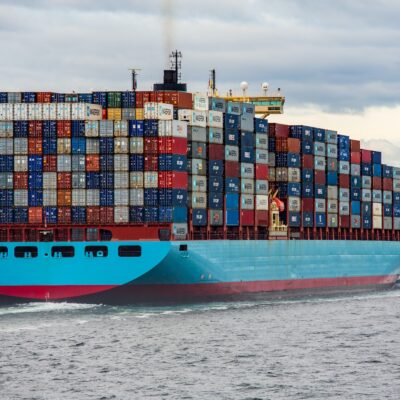

The Issue
For 50 years, businesses have been finding ways to succeed while offering fewer secure jobs to American workers. Rapid globalization and high levels of immigration offered the alternative of foreign workers. Wall Street pursued strategies that generated cash while minimizing investment and employment. Labor unions were largely sidelined. As a result, growth and profits surged while wages stagnated.
What Voters Say
- 85% of GOP voters favor greater worker power that drives up wages. In a situation where employers complain that they cannot find enough workers, 85% of GOP workers say this is “a tight labor market, which is good. Employers should offer better jobs and higher pay if they need more workers.” Only 15% say this is “a labor shortage, which is bad. Policymakers should consider solutions like higher immigration to provide more workers.”
- 74% of workers don’t want unions in politics. Among potential union members at private sector companies, 74% say they would prefer to be a member of a worker organization “that devotes its resources only to issues facing you and your coworkers at your workplace.” Only 26% would prefer one that devotes its resources to “national political issues” as well.
Why It Matters
Employers and pro-business economists see cheap labor as vital to economic growth and so are quick to declare a “labor shortage” at the first sign of typical workers receiving real wage increases. This helps explain why real wages have risen by 1% over the past 50 years, while corporate profits per capita rose by 185%. Policymakers must reject this logic, and such results, and seek instead to strengthen worker power, especially for the lower-wage workers who have not shared in recent decades of growth.
When employers have to compete for workers, three important things happen. First, workers get better opportunities and higher compensation. Second, employers work harder to bring marginalized workers off the sidelines, delivering better economic outcomes for people who might otherwise lack connection to the labor force. Third, as they see their labor costs rise and struggle to fill open positions, employers have a strong incentive to invest in equipment, processes, and training that make workers more productive. That investment and productivity growth is the key to widely shared and rising economic prosperity.
Conservative politicians have become very comfortable in recent decades with making the argument that policies beneficial to business owners (“job creators”) will ultimately benefit workers as well. That can be true, but it isn’t necessarily true, and hasn’t been true in practice. Leaders need to make a stronger case for the converse, that what is good for workers can ultimately redound to the benefit of businesses. And then they must pursue policies that would make this so, by creating the economic conditions for this to happen: ensuring that workers have greater power in the labor market and that the businesses who do invest in domestic capacity and productivity are the ones best positioned to thrive.
Political Leaders
What to Talk About
- Capitalism. American democratic capitalism is the most powerful force the world has ever seen for delivering economic progress and rising prosperity. But the free market does not accomplish this automatically, and in recent years it has been failing at the task. Capitalism works when the private and public interests align, so that businesses pursuing profit do so in ways that also benefit workers, communities, and the nation. Prosperity is widely spread when workers have the power to insist on it, and employers have no alternative.
- Jobs Americans Would Do. Many business leaders, and even some politicians, perpetuate the trope of “jobs Americans won’t do.” Such jobs can only exist in a world where public policy provides foreigners willing to do them instead. What would be the point of creating a job that no one will take? Leaders should emphasize that the goal is an economy in which jobs are secure and allow Americans to support families, and that for businesses to succeed they will have to create such jobs.
- Labor Movement. The American system of organized labor is deeply dysfunctional, but in principle, a strong labor movement that gives workers power should be a priority across the political spectrum. Leaders should emphasize the need for serious reform to give more workers greater power in the labor market and voice in their workplace.
Policy Proposals
- Mandatory E-Verify. The supply of workers in the labor market is a key determinant of worker power. High levels of illegal immigration create large pools of easily exploited workers, particularly in less skilled and lower-wage segments of the labor market where American workers are already struggling. The federal government already operates an “E-Verify” system that allows employers to verify the legal status of employees, yet use of that system inexplicably remains optional. Use should be mandatory and employers willfully violating the law and employing illegal immigrants should face severe penalties.
- Global Tariff. Broad swaths of American industry have been moved offshore in pursuit of cheaper and more easily exploited labor, badly weakening the power of American workers. The nation’s trillion-dollar trade deficit represents an enormous shift in productive work outside our borders, with no commensurate increase in opportunities for our workers. A tariff applied on all imports, rising gradually until trade comes into balance, would create strong incentives to produce more with American workers and to invest in productivity.
- Unbundled Unions.The aggressive leftward tilt of modern U.S. labor unions distorts the views of workers and deforms the nation’s politics. Unions should be unbundled, separating political and economic functions so that worker organizations focus exclusively on workplace issues while separate PACs spend freely donated funds. Unions focused on workers’ interests would have more members and earn support across the political spectrum.
Media
What to Ask
- The United States has a trillion-dollar deficit. Is this trade deficit good or bad for American workers, and what if anything should be done to reduce it?
- Many employers complain that they cannot find enough workers to hire. Is this a good thing because it will force employers to raise wages and improve productivity, or a bad thing, because it will slow growth and raise prices?
- Do you support the idea of workers organizing to exercise collective power? If so, how would you help more of them do so? If not, why not?
Assignment Desk
- In low-wage industries like agriculture, automation technologies exist but often are not deployed. Why not?
- Manufacturing productivity has declined in the past decade, meaning factories need more labor to produce the same output. Where is that occurring and why?
- Labor unions express uniform support for progressive causes and the Democratic Party, yet their members have heterodox views and some cases may even tilt to the right. How do workers feel about the political activism of their leaders, and how do leaders defend actions out of step with the preferences of their members?
More from Issues 2024
Issues 2024: Middle-Class Security
Stagnating wages have prevented workers from keeping up with the costs of attaining middle-class security in America.
Issues 2024: Industrial Policy
A strong industrial base is vital to workers and their communities, the rate of technological and economic progress, and national security.
Issues 2024: Wall Street
For the American economy to boom again, financial markets will have to return to their proper role promoting productive investment.
Issues 2024: Globalization
Revitalizing the national economy must begin with restoring the incentive to invest and build in America.
Issues 2024: Family
The cost of achieving middle-class security has risen much faster than the typical wage, and now the nation’s fertility rate is plummeting.














